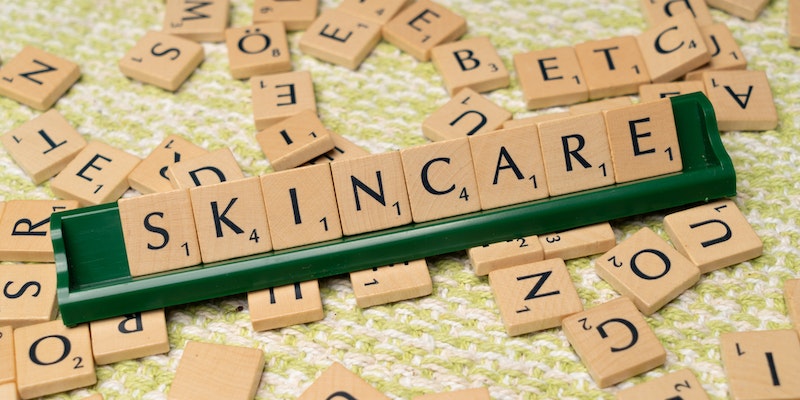What to Do if You Have Dehydrated Skin
Dec 31, 2023 By Madison Evans
Many individuals face the common concern of dehydrated skin, which impacts both the health and appearance of their skin. It's crucial to recognize signs and symptoms associated with this condition to implement an effective skincare routine. This article aims to explore the causes of skin dehydration while also providing actionable tips on how to best restore optimal hydration levels in your skin, as well as maintain them over time.
Signs of Dehydrated Skin
Loss of Elasticity - A Dull and Sagging Appearance
A notable loss of elasticity renders dehydrated skin with a lackluster, sagging appearance. Its bounce-back capacity diminishes, thus contributing to an overall dull complexion.
Fine Lines and Wrinkles - Premature Aging Indicators
The premature development of fine lines and wrinkles is catalyzed by inadequate hydration. The visibility of these aging indicators accentuates the absence of sufficient moisture, thus highlighting optimal skin hydration's importance.
Tightness and Rough Texture - A Sign of Moisture Imbalance
Clear indicators of dehydrated skin include the sensation of tightness and a rough texture, suggesting an imbalance in moisture levels. This necessitates targeted skincare interventions to restore suppleness and smoothness.
Flakiness and Peeling - Manifestations of Dehydration
Dry patches, flakiness, and peeling frequently manifest as signs of dehydrated skin. These visible indicators emphasize the urgent necessity to replenish moisture. The skin grapples with maintaining its protective barrier against external elements, a critical function it must perform impeccably.
Symptoms of Dehydrated Skin
Itchy Sensation - Resulting from Moisture Deficiency
Insufficient moisture frequently causes a direct consequence, an itchy sensation in dehydrated skin. This discomfort might induce scratching, which further compromises the integrity of the skin and exacerbates the overall issue.
Increased Sensitivity - Reactivity to Environmental Factors
Dehydrated skin exhibits a significant symptom, heightened sensitivity to environmental factors like temperature changes or specific skincare products. Consequently, it becomes crucial to address this sensitivity, an essential step in mitigating further irritation and damage.
Redness and Irritation - Telltale Signs of Dehydration
Inherently prone to redness and irritation, dehydrated skin signals an imbalance in its moisture content It presents visible indicators of inadequate hydration. Effective management of skincare necessitates the identification and address of this root cause.
Dull Complexion - A Lack of Radiance
A lackluster complexion is one of the trademark symptoms that characterizes dehydrated skin. The radiant glow often associated with a well-hydrated epidermis diminishes, underscoring a pressing need for comprehensive strategies in hydration.

Causes of Dehydrated Skin
Inadequate Water Intake
Directly affecting skin hydration is insufficient water intake. Paramount to this issue is maintaining internal hydration, as a lack of internal moisture can visibly manifest itself on the surface of your skin.
Harsh Weather Conditions
Particularly cold and dry climates can strip the skin of its natural moisture, emphasizing the need to adapt skincare routines based on prevailing weather conditions. Extreme weather conditions specifically underscore this environmental factor.
Incorrect Skincare Products
The utilization of products containing harsh ingredients, or the excessive use of exfoliants, has the potential to disrupt the skin's moisture barrier. Thus, it is imperative to comprehend and discern skincare product ingredients. This understanding is paramount for preventing inadvertent damage to the protective layer of our skin.
Aging Process
As people age, their skin's capacity for retaining moisture diminishes. This makes the skin more vulnerable to dehydration. Understanding how the aging process affects skin hydration guides us in development. customized skincare strategies suited for varying life stages.
Skin Hydration Tips
- Hydrating from Within
The cornerstone of healthy, well-hydrated skin is proper hydration. In addition to the often-recommended daily intake of eight glasses of water, you should also contemplate integrating water-rich foods into your diet.
These include but are not limited to watermelon, cucumber, and celery. Such foods not only augment overall hydration levels but also furnish your body with indispensable vitamins and antioxidants.
- Choosing the Right Skincare Products
For combating dehydration, it is crucial to select hydrating skincare products. Opt for products that feature natural ingredients, aloe vera, renowned for its soothing and moisturizing properties.
Moreover, consider exploring formulations with antioxidants like vitamin E. This not only promotes hydration but also shields the skin from environmental damage.

- Gentle Cleansing Routine
Vital for preserving the moisture balance of your skin is diligent adherence to a gentle cleansing routine. Thus, consider incorporating an effective micellar water cleanser, one that removes impurities without stripping away the skin's natural oils. By adopting this strategy, you guarantee a fresh canvas for subsequent skincare products and mitigate any unnecessary dryness.
- Regular Moisturization
Consider incorporating hydrating serums into your routine, beyond simply choosing a suitable moisturizer. Such serums often boast concentrated ingredients, for instance, niacinamide. These not only moisturize but also tackle specific skin concerns such as uneven tone and texture.
By applying the serum before your chosen moisturizer, you can enhance both the overall hydration of and effectiveness in your skincare regimen can enhance the overall hydration and effectiveness of your skincare routine.
- Humidifier Use
Consider introducing houseplants into your living space in addition to utilizing a humidifier in dry environments. Through a process known as transpiration, plants release moisture thus enhancing the overall humidity.
Particularly during colder months when indoor heating systems can deplete air moisture levels. This natural approach significantly aids in maintaining skin hydration.
Preventing Dehydrated Skin
- Sun Protection
Do not overlook the benefits of protective clothing, such as wide-brimmed hats and UV-blocking sunglasses, while sunscreen remains crucial. This additional layer provides an extra defense against harmful UV rays. It diminishes the risk of sun-induced dehydration and enhances overall skin health.
- Balanced Diet
Incorporate hydrating foods rich in essential fatty acids and antioxidants, such as avocados and berries, into your diet. These nutrients actively support skin hydration and foster a radiant complexion. Consult a nutritionist to tailor your dietary choices specifically to meet the unique needs of your skin.
- Avoiding Hot Water
Consider enhancing your shower routine with the incorporation of moisturizing shower gels or oils: these products actively replenish the skin's natural oils, a counteraction to potential drying effects caused by water temperature.
After showering, adopt a gentle patting method to dry your skin; avoid harsh rubbing which could strip away additional moisture.
- Regular Skin Checkups
In addition to personally monitoring your skin, you should schedule regular appointments with a dermatologist for comprehensive assessments. The professional's advice may uncover potential issues before they escalate. This ensures that skincare is approached proactively and tailored specifically to address your unique skin type and concerns. Contributing significantly towards a holistic strategy for maintaining optimal skin hydration, regular checkups also promote overall well-being at an unprecedented level.
Conclusively, comprehending the indicators, manifestations, and origins of skin dehydration bears vital importance in the establishment of an efficient skincare regimen. Embracing a holistic strategy involving adequate hydration, appropriate skincare products along preventative actions, individuals can sustain optimal skin moisture, yielding a healthy radiant complexion. By proactively addressing and preventing skin dehydration, one enhances long-term skin health as well as overall well-being.

Impact of Eating After Exercise on Weight Gain

Mastering Oily Skin: Tips and Tricks

Discover Honeydew Melon's Nutritional Value and Wellness Gains

Maximizing Lavender Oil Benefits and Effective Usage Methods

Natural Skin Hydration Basics

Effective Strategies for Sustainable Weight Loss

Bridging the Gap Between Treatment and Recovery: Effective Strategies for Transition


